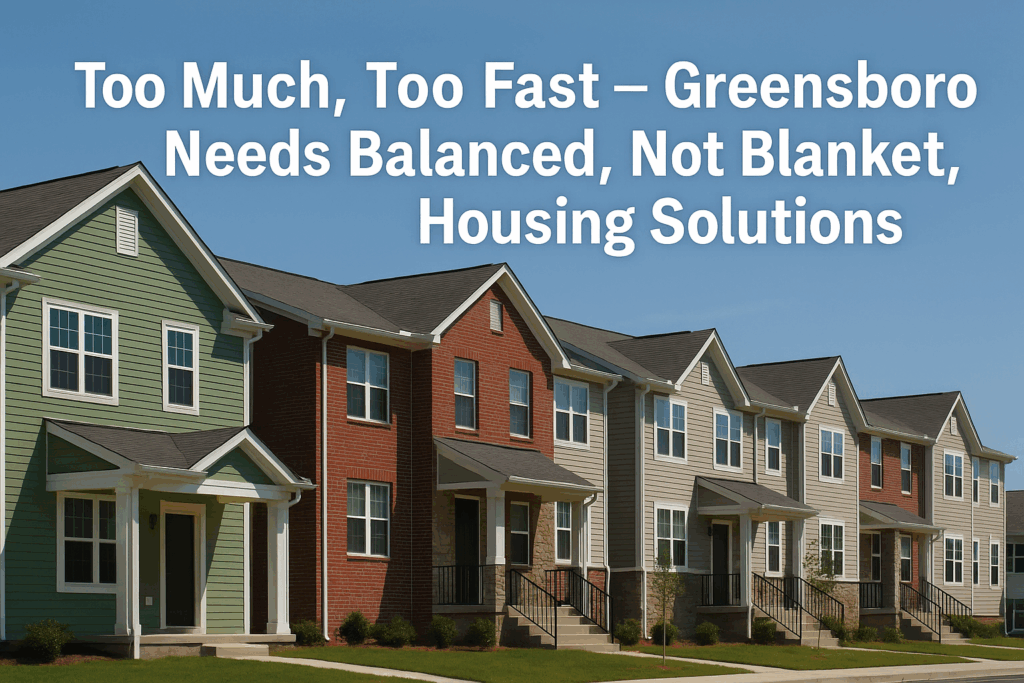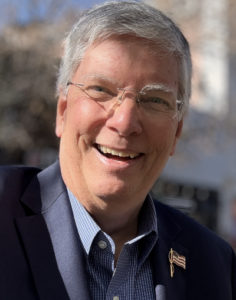
Written by Nicky Smith
May 14, 2025

This past week, the Greensboro City Council approved over $6.5 million in funding for four affordable housing projects totaling 264 units, backed by a combination of federal, city, and bond dollars. While the goal of expanding access to affordable housing is vital for our city, the concerns raised during this vote, particularly by Councilwoman Sharon Hightower, deserve deeper consideration.
As someone who has spent more than 45 years leading successful business ventures and solving complex infrastructure challenges, I strongly believe in affordable housing—when it’s intentional, balanced, and smartly integrated into the broader fabric of our city. Unfortunately, what we are seeing now feels more like quantity over quality.
Councilwoman Hightower, who represents East Greensboro, rightly pointed out that two of the four approved developments will be located in her district — a part of the city that has long suffered from a lack of grocery stores, healthcare access, quality restaurants, and economic investment. Simply put, stacking more affordable housing units in underserved areas without also investing in essential services is not equitable development — it’s an imbalance in action.
This decision also highlights a broader concern: the potential misuse of the City Manager’s “Road to 10,000” initiative, which aims to add 10,000 new housing units by 2030. While that goal sounds ambitious and visionary on paper, it should not become a blanket justification for approving housing developments without ensuring infrastructure, economic opportunity, and neighborhood compatibility.
Let’s look at the numbers:
84 units at Randleman Road ($3 million city loan)
72 units at Vandalia Road ($1.5 million city loan)
48 units at Overland Heights ($850,000 city loan)
60 units at Windhill Court (rehabilitation, $1.2 million city loan)
These developments represent a total investment of $67.9 million, but almost entirely in southeast and east Greensboro. That raises the question: Why is the burden of affordability being shouldered by one part of our city? Where is the intentional planning to spread these investments across all districts, including those west and north of downtown?
Greensboro can and should be a leader in affordable housing, but how we get there matters. We need:
Equitable geographic distribution of affordable housing
Concurrent investment in services like grocery stores, clinics, restaurants, and transit
Transparency in how projects are selected and where bond funds are directed
A commitment to listening to residents who live in these neighborhoods and ask for more than just housing — they are asking for a chance to thrive.
As your candidate for District 4, I will advocate for smart growth—growth that listens, plans, balances, and includes everyone. We need to stop clustering affordable housing in already underserved communities and instead craft development that reflects Greensboro’s full diversity and potential.
Let’s build a Greensboro that lifts up all neighborhoods, not just some. And let’s ensure that every dollar spent by this city is part of a long-term, holistic plan, not a short-term box-checking exercise.
If you agree that we need balanced, common-sense leadership on the City Council, I hope you’ll join me. Together, we can make Greensboro a place where every resident has a fair shot, no matter their ZIP code.
— Nicky Smith
Candidate, Greensboro City Council District 4